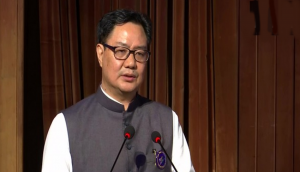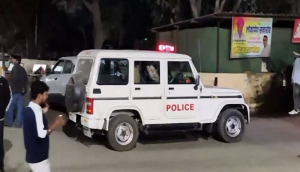
If Central Advisory Board of Education (CABE), a top body advising the Centre and states on education sector reforms, accepts a proposal on extension of the RTE Act,the Right of Children to Free and Compulsory Education may soon encompass school education from nursery to class tenth.
The CABE will consider the report of its sub-committee on extension of the RTE Act and the controversial no-detention policy at a meeting to be chaired by Human Resource Development Minister Smriti Irani on August 19, official sources said. The meeting, which will engage in an "exhaustive deliberation" on the two issues, will be attended by education ministers from states besides academicians and distinguished people from several fields. The Act currently applies to children between six and 14 years studying from Class I to VIII.
The CABE sub-committee in its report submitted in 2012, when UPA was in power, had identified issues such as entry age for pre-school under the extended framework, qualification and capacity building of teachers at the pre-primary level, age of children in secondary education and duration of secondary education.
Chairing the last CABE meeting on the issue, the then HRD Minister M M Pallam Raju had said it needed comprehensive discussion before a decision on extending RTE's purview was arrived at.
On its extension to the pre-primary level, the panel had suggested ensuring child-centered pedagogy, play-way method and holistic development as critical elements of pre-school education and stressed on the need for effective coordination with Integrated Child Development Scheme (ICDS).
For RTE's extension up to the secondary level, the sub-committee had suggested assessment of existing infrastructure, appointment of additional teachers and recommended consultations with all stakeholders including the state governments. The role and regulatory mechanism of the private sector and sharing of financial responsibility between the Centre and states were some of the other issues highlighted by the panel for detailed discussion.
CABE would also deliberate on the report of another sub-committee on no-detention policy up to class VIII. The committee headed by the then education minister of Haryana Geeta Bukkal had recommended doing away with it as automatic promotion affected learning outcomes. A few states have already repealed the policy, which had come into effect with the implementation of RTE by bringing in necessary amendments to the state rules.
The RTE Act, which makes education a fundamental right of every child between the age of 6 and 14, came into effect on April 1, 2010. It requires all private schools, except for minority institutions, to reserve 25% of seats for underprivileged children.
-PTI







![BJP's Kapil Mishra recreates Shankar Mahadevan’s ‘Breathless’ song to highlight Delhi pollution [WATCH] BJP's Kapil Mishra recreates Shankar Mahadevan’s ‘Breathless’ song to highlight Delhi pollution [WATCH]](https://images.catchnews.com/upload/2022/11/03/kapil-mishra_240884_300x172.png)

![Anupam Kher shares pictures of his toned body on 67th birthday [MUST SEE] Anupam Kher shares pictures of his toned body on 67th birthday [MUST SEE]](https://images.catchnews.com/upload/2022/03/07/Anupam_kher_231145_300x172.jpg)






